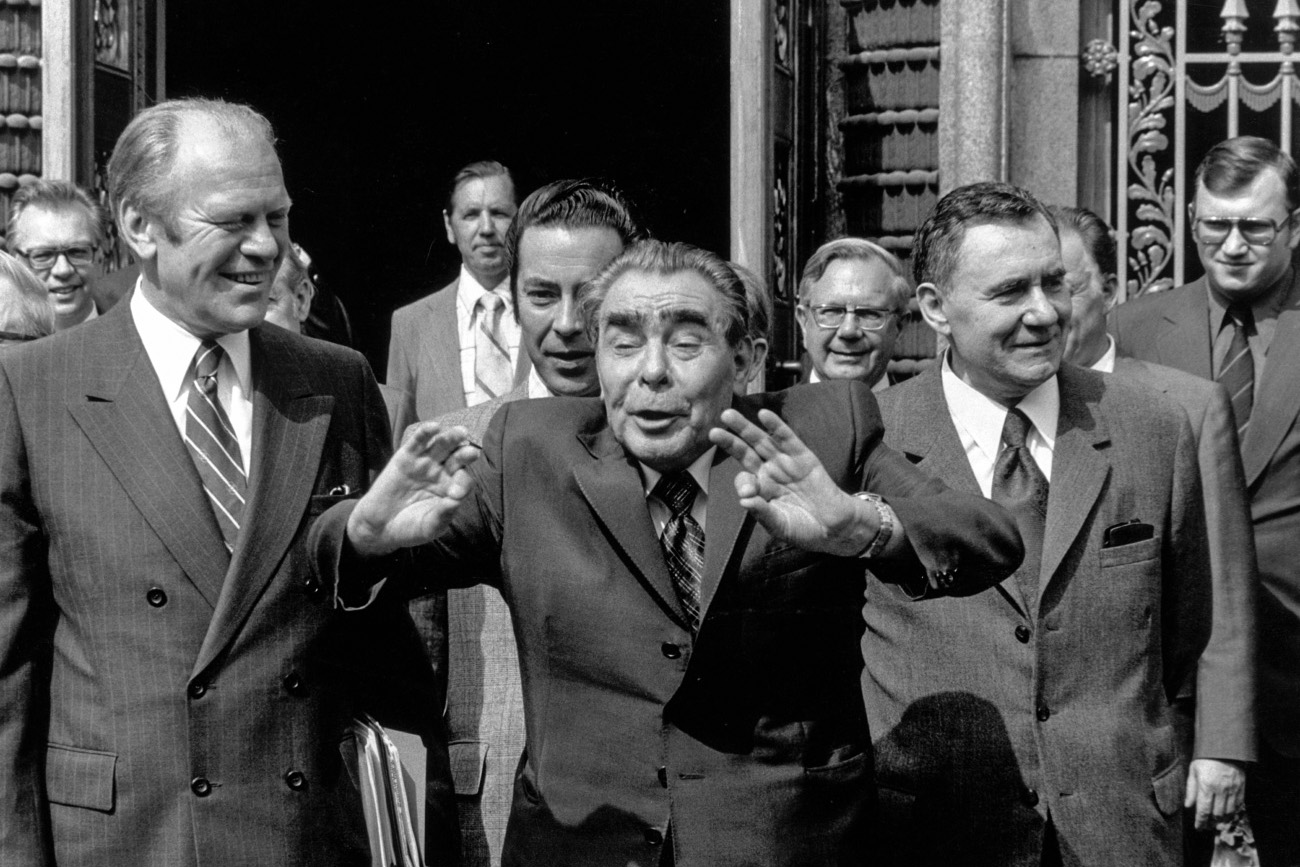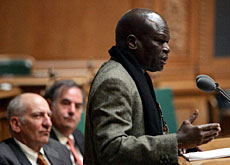
“Swiss are not sheep-like racists”

Interreligious tensions, discrimination and freedom of expression are just some of the burning issues dealt with in a new book on racism in Switzerland.
“Kein Volk von Schafen – Rassismus und Antirassismus in der Schweiz” (Not a nation of sheep – racism and antiracism in Switzerland) is the latest book by Swiss historian Georg Kreis, who is president of the Federal Commission against Racism.
For Kreis, who has been head of the commission since 1995, it is extremely difficult to say whether the Swiss have become more racist over time, as there are no comparable studies on the matter.
In general, Swiss people are driven by the need to be polite, he says. Their openness – or not – towards others is first and foremost a question of mental attitude, where logic and reality have little impact.
But despite the difficulty in quantifying the phenomenon, “both racism, anti-racism and anti-antiracism have progressed” over the past few years in Switzerland, he says.
Some people argue that racism is discussed much more nowadays, especially in the media, the author explains, but more commonly the debate focuses on foreigners who are in the wrong and rarely on those who are victims.
On the other hand “Jews have learnt to talk in public, Muslims not yet, while blacks and travellers speak out but no one listens to them,” writes Kreis.
Racist context?
His book is a cry of alarm against those who think the fight against racism is useless or counterproductive.
“Racism is a variation of a much wider mentality; when people want to be vicious, it’s part of a mental context which encourages and nurtures the sentiment…but this context is not racist in itself,” he writes.
The “context” Kreis refers to is the rise in popularity of the rightwing Swiss People’s Party, which scooped 29 per cent of the vote in the October parliamentary elections, and far-right groups.
The recent election campaign was marked by the Swiss People’s Party’s “black sheep” poster campaign, which has been accused of racism, depicting three white sheep kicking a black sheep out of the country, and efforts to ban minarets in Switzerland.
Christoph Blocher, the People’s Party’s leading light and the Swiss justice minister, has also gained popularity in recent years with his anti-European stance and nationalist and isolationist message.
Kreis’s book dedicates an entire chapter to the “Blocher factor”. He warns that the People’s Party and far-right groups have created an atmosphere in the country that is favourable to anti-foreigner feelings.
Absurdist arguments
The historian also looks at criticism of Swiss anti-racism legislation, which he says often borders on the absurd. Certain critics argue that Swiss anti-racism laws cause racism, which is like saying road safety laws cause accidents, jokes the author.
Freedom of expression also gets its own chapter. Kreis writes that anyone who demands total freedom of expression is not only egocentric but is also acting contrary to his own interests, as “insults are elements of conflicts – both direct and indirect”.
But the historian also talks about the dangers of “fake tolerance” and the failings of multiculturalism.
Kreis gives the example of a Swiss teacher asking a Muslim student to explain the Koran to his classmates – a task that any Christian student would surely have difficulty with, he says.
Making Muslims or Jews “more religious than they are in reality” is one of the most frequent failures of multiculturalism, explains the Swiss author.
swissinfo, Ariane Gigon

More
Federal Commission against Racism
Georg Kreis was born in Basel in 1943.
He studied at Basel University and gained a PhD in contemporary history.
He is director of the Europa Institute at Basel University.
He was appointed president of the Federal Commission against Racism in 1995.
A decision is expected in the next few weeks on whether Kreis is re-elected as head of the commission for a fourth four-year term.
Kreis is also the author of numerous publications on the Second World War, censorship of the press, secret military relations between Switzerland and France and the acquisition of “degenerate” art in Basel. He also led a national research project looking at relations between Switzerland and South Africa during the Apartheid era.
“Kein Volk von Schafen – Rassismus und Antirassismus in der Schweiz” (“Not a nation of sheep – racism and antiracism in Switzerland”) is published in German by Salis Verlag of Zurich.
2006: 88 cases, including 23 of verbal racism
2005: 111 cases, including 44 of verbal racism
2004: 109 cases, including 29 of verbal racism
2003: 116 cases
2002: 128 cases

In compliance with the JTI standards
More: SWI swissinfo.ch certified by the Journalism Trust Initiative







































You can find an overview of ongoing debates with our journalists here . Please join us!
If you want to start a conversation about a topic raised in this article or want to report factual errors, email us at english@swissinfo.ch.